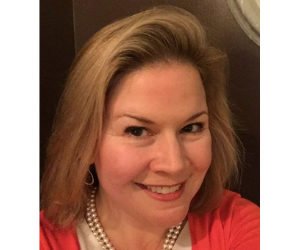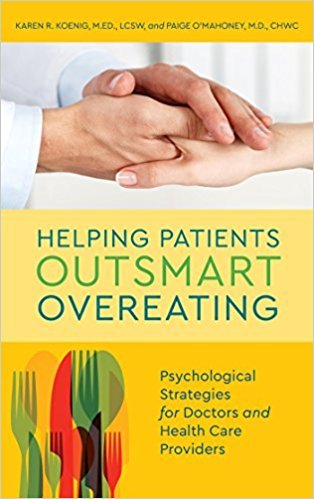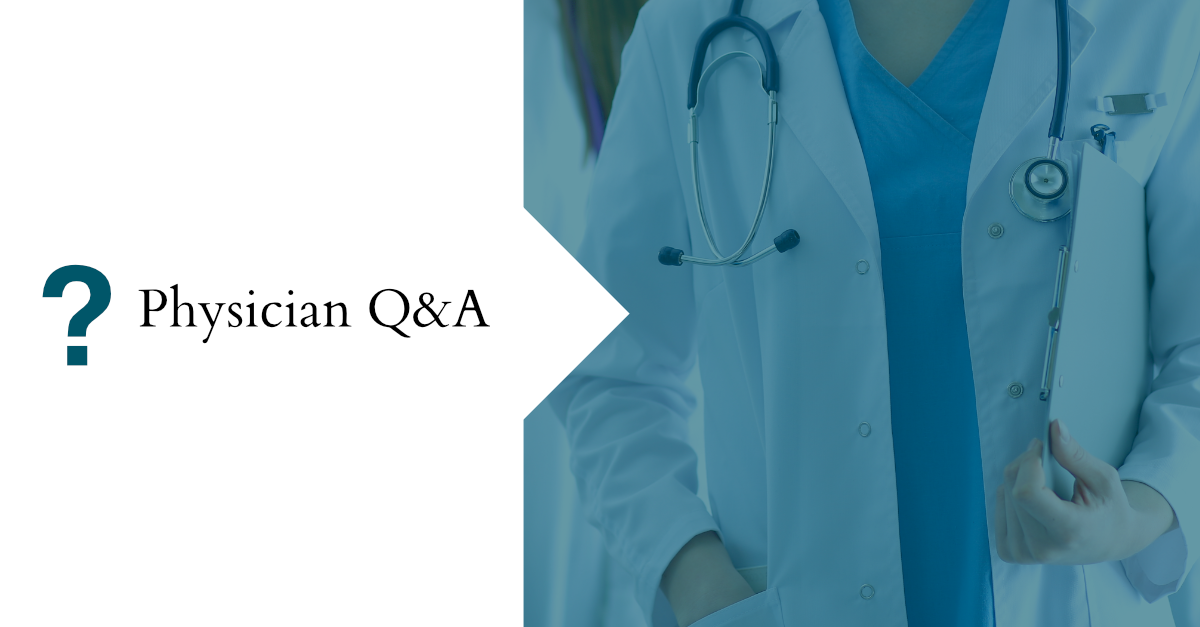Last Updated on June 26, 2022 by Laura Turner
Tell us a little bit about yourself.
I started medical school at age 27 after studying international relations in college and then working as a paralegal in an international law firm. I met my husband, who was also changing careers, the first day of a post-baccalaureate premed program called MedPath at the Ohio State University. I mention this because I did not choose to pursue medicine at an early age, but rather felt called to it during the course of my education and training in other areas.
When did you first decide to become a physician? Why?
While I was working as a paralegal in a law firm after college, a 4th year medical student on an elective rotation was assigned to share my office. As I got to know her and saw her fund of medical knowledge at work in that setting, I knew I needed to go into medicine. Overcoming my trepidation about taking on the challenge of the premedical curriculum that had intimidated me when I was younger helped me prove to myself that none of it is really that difficult if you have enthusiasm and passion for it. I struggled with the early classes, zoology and organic chemistry, but with practice and study, I developed an aptitude for the sciences, just like my classmates, and I loved it.
What did you like the most about your medical studies? What did you like least?
As I mentioned, I was 27 when I started medical school. I had the benefit of having worked for several years after college, and that helped me to understand some of the context for taking care of real people who have jobs, families and concerns about the cost of their health care. I loved the faculty and administrators at the Ohio State University College of Medicine, and particularly the ones in student services. Most of all, I loved sharing an auditorium with 209 other people with histories, talents, and interests that were different from my own. My classmates provided a wonderful support network and also inspired me to rise to the challenge of learning that incredible amount of content. So that, and marrying my husband after my second year ended were what I enjoyed most. I’m guessing that many of your readers can identify with the “wedding followed by 3-day honeymoon in order to be back in time to start 3rd year clerkships on Monday” approach to marriage? It was a whirlwind, and 18 years later we’re still together, so it appears to have worked. Maybe we’ll take a longer honeymoon someday…
What I liked least about my medical studies was learning that there is not a cure or an ideal outcome for every patient. Sometimes there is no right answer and you have to do the best you can for the patient with the information and resources that you have available, and pray for the best. Sometimes they die because their disease is so advanced or their condition so tenuous that nothing we can do will prevent it. All we can do is do our very best, be there for them, and support them and their families. We all have to learn that in the course of our training, but as humans, it is painful.
Previously, you practiced as a pediatrician. What led you to shift your career toward health and wellness coaching?
I loved my pediatrics practice, both in the office and as a night hospitalist in the NICU, and my reasons for leaving pediatric medicine were practical and family-driven. I was fortunate to have that opportunity to take a break from professional activity to raise my children. I always knew that I would return to health-related professional activity, and while I had more time to read and study, I started focusing on an area that had always been a challenge for my patients and their families: childhood overeating and weight concerns. I knew that putting kids on a diet was not good for their mental or physical health (or for their long-term ability to sustain a comfortable, healthy weight), particularly during periods of rapid growth, but I also knew that weight fluctuations and obesity are associated with diminished health. My career shift toward health and wellness coaching was the result of my learning new approaches and modalities to help these patients, many of which were not part of my medical training.
If you had to do it all over again, would you still follow the same career path?
Absolutely. I have been fortunate to learn from and collaborate with amazing people, and I am incredibly grateful for the enhanced skill set that I acquired by combining skills from medicine, coaching, and success psychology. I’m fortunate to have had the opportunity.
Describe a typical day at work—walk me through a day in your shoes.
My day often starts before anyone else in my household is awake. I do my best writing in the morning, which is when I work on articles, curriculum content for my health professional trainings, correspondence, and specific resources for clients. After my children go to school, I have meetings and client appointments. I organize my schedule so that I am available to my family in the late afternoon and evenings, preparing dinner, driving to sports and extracurricular activities, helping with homework. I sometimes work at night, just not on medical charts anymore. One surprising change in my work life now is that, since I am a small business owner, quite a bit of my time is spent marketing my services and products through networking, collaboration, and service, so that people who might benefit know where to find me. That was a complete surprise to me after practicing medicine, where patients know exactly how and where to find a doctor when they need one. Without an office building, an in-house support staff, or a large advertising budget, small business owners need skills that I, for one, never learned until recently.
If you took out educational loans, is/was paying them back a strain? Did that affect your decision when you moved away from clinical practice?
It was definitely a big consideration, and we were fortunate that my husband was by that time making enough to support our family, provided we stick to our budget. We structured our educational debt at the end of residency over a 30-year term. We make regular payments at a very low interest rate, and every time we have had extra money, we have made an extra payment toward the principle. We have found it to be less of a strain if it is a directed expense that comes out first with every paycheck. That being said, each person’s situation is unique. It is very important to consider the financial and personal implications of leaving a career in medicine—which comes with a regular paycheck and benefits—for one that involves starting (and investing in) a small business. It is very important to have a budget, a business plan, and a clear understanding of both the sacrifices required and your willingness to make them. I have found that physicians who are considering this transition are often surprised by the unexpected expenses and sacrifices involved. Knowing about these in advance is one step (of many) in making an informed decision.
In your position now, knowing what you do, what would you say to yourself back when you started your medical career?
Go for it! Medical school teaches you a skill set and a manner of interacting with people that is applicable to so many professional areas. Medicine is still an honorable caring profession, and I am proud to be part of that tradition.
From your perspective, what is the biggest problem with healthcare today? Please explain.
Affordability and access. Also, that the doctors and other providers are being squeezed. They are being paid less to see more patients in a shorter time interval, which is stressful in a multitude of ways for both provider and patient. It is becoming harder to provide the level of care that we know is appropriate with the “productivity” demands of 21st century practice. Advocating for our patients becomes more difficult, and our relationships and continuity with them suffer when our time with them is artificially rushed. Patients deserve better.

Tell us about your book “Helping Patients Outsmart Overeating” in a nutshell.
I wrote the book with internationally respected eating disorders therapist and 7-time author, Karen R. Koenig, M.Ed., LCSW, who has worked with patients who struggle with overeating and weight concerns for three decades.
Karen and I decided to collaborate on this book to help doctors and health care professionals understand three things:
1. Why patients overeat
2. Why our “diet and exercise” advice alone fails to deliver either permanent weight loss or lasting health improvement
3. How eating and success psychology can help patients overcome dysregulated eating and achieve lasting, self-directed wellness
We also wanted to highlight resources and experts that healthcare providers can leverage to improve patient care and advocacy in this area.
Where did the idea for the book come from?
As I mentioned, when I left the practice of medicine, I vowed to use my time to seek a helpful treatment approach for my young patients and their families. That, along with my own experience as a child who started dieting before age 10 and struggled with overeating for 30+ years before I found healing through an eating psychology-based approach that included the acquisition of these same self-care and life skills. Karen was eager to educate the medical community about why the “diet and exercise” approach to overeating is most often unsustainable if these psychological skills are not in place.
What is your ultimate goal for the book?
We have three primary goals:
1. More effective treatment for people who suffer from overeating, chronic dieting, negative body image and weight concerns
2. An end to the suffering and stigma often felt by these patients and their families
3. Empowerment in the form of an enhanced understanding of eating psychology and hopefully, useful additional skills and strategies for both providers and patients
How can “Helping Patients Outsmart Overeating” help students and health professionals?
First, our hope is that the book will help students and health professionals understand the often-overlooked psychological drivers of overeating, chronic dieting, and weight cycling, so that they can incorporate this understanding into compassionate, effective, wellness-promoting care for these patients.
Second, both students and health professionals can benefit from the success psychology and coaching psychology skills that we discuss in the book. Chapter 7 presents a “wellness skill set” that can support consistent, sustainable self-care for patients and for professionals. These skills not only promote health and wellness. They also support habits that can improve other life domains, like marriage and relationships, and promote greater happiness and personal satisfaction as well.
What surprised you most about your work on “Helping Patients Outsmart Overeating”?
I was surprised and delighted to learn that the same psychological skills that promote patient wellness and resilience can also enhance professional satisfaction and may help prevent physician and provider burnout. That was the most exciting discovery for me.
What is one thing you want new doctors to know about helping their patients who struggle with overeating?
That these patients have suffered, not only because of a pervasive cultural prejudice against fat, but also due to their frustration with the long-term ineffectiveness of a “diet and exercise” medical treatment model that fails to address the psychological reasons that people overeat. Healing overeating begins with empathic understanding, non-judgmental awareness, and self-compassion. Sustainable healing requires consistent self-care and the life skills to sustain it.
Paige O’Mahoney, MD, CHWC, is a health and wellness coach, certified Intuitive Eating counselor, retired pediatrician, author and foodie. Information about her coaching practice, workshops, trainings, kitchen tips and recipes may be found at www.deliberatelifewellness.com.
Disclaimer: Please note that this article is intended for informational and educational purposes only. It is not intended as a substitute for the medical or psychological assessment, advice and individualized care from your personal health care provider or mental health professional. Please consult with your personal healthcare professional regarding your individual situation and concerns. For health care providers, the information contained herein may not be applicable or appropriate for every patient. Paige O’Mahoney, M.D. and Deliberate Life Wellness, LLC specifically disclaim any and all liability arising directly or indirectly from the use of any information or products contained in these materials. Mention of products, techniques, methods, resources, approaches, or other entities in our materials is for informational purposes only and does not indicate endorsement.
